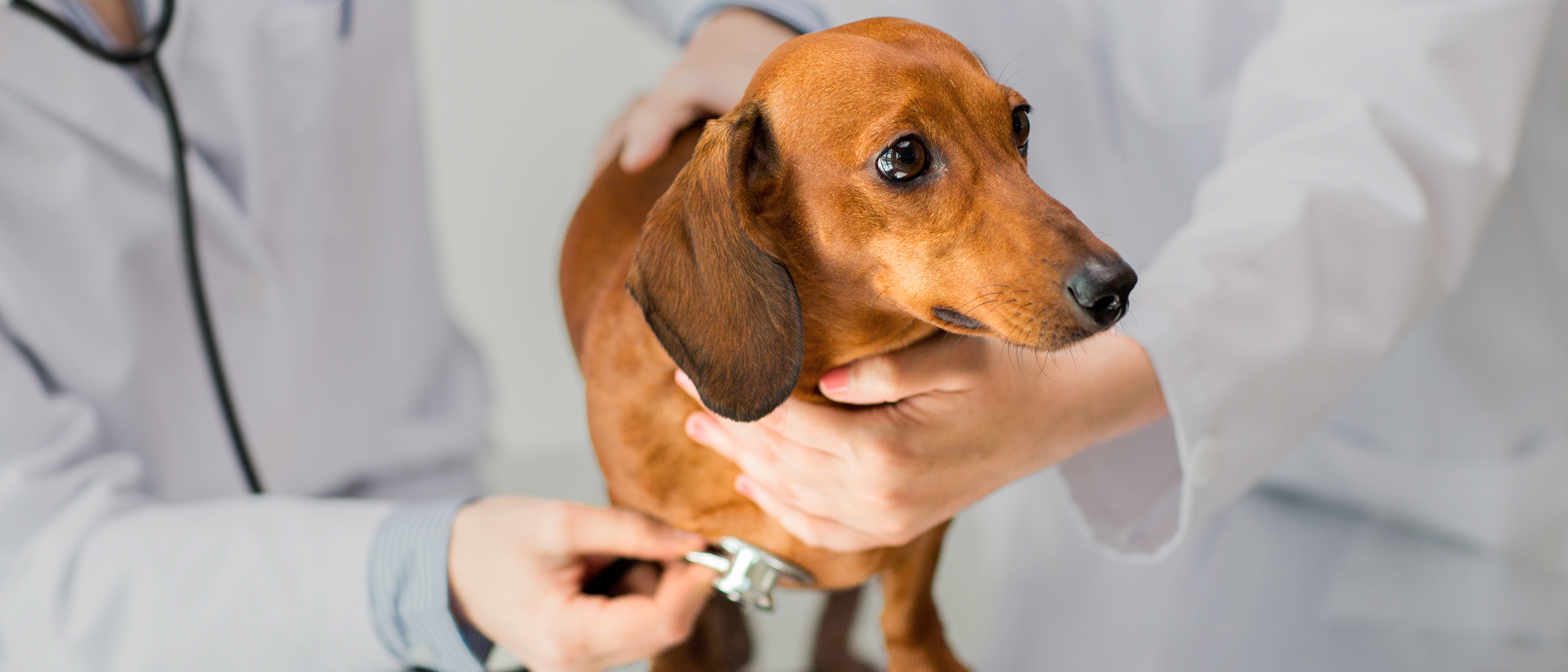Leptospirosis in dogs

What is leptospirosis?
Leptospirosis is a zoonotic bacterial infection that is spread by rats, often through contaminated water. It is an extremely serious condition and is very often fatal for dogs.
What are the symptoms of leptospirosis?
Clinical signs range from mild subclinical infection to multi-organ failure and death. In fact, acute kidney injury has been the most common presentation for canine leptospirosis in recent years. Dogs affected by leptospirosis may show the following clinical signs:
- Fever and illness
- Sore muscles and a reluctance to move
- Weakness
- Depression
- Loss of appetite
- Vomiting
- Diarrhoea
- Coughing
- Nasal discharge
What causes leptospirosis?
Leptospirosis comes from bacteria that is transmitted by rodent urine which can then be passed on to humans and certain animals, including dogs (zoonotic disease). It is most common in wet environments and can be found in marshy or muddy areas. Dogs will most often come into contact with leptospirosis through infected water, either when swimming, drinking or just passing through.
Can my puppy be vaccinated against leptospirosis?
Leptospirosis can be prevented by vaccination, so it's important to make sure your puppy gets the necessary jabs at the right age.
Vaccinations are most effective when they are given at fixed dates with boosters. Puppies usually begin a vaccination programme at the age of 6 to 8 weeks. The leptospirosis vaccination will most often be given at 11 – 13 weeks with a booster at 15 – 17 weeks.
Your puppy will only be considered vaccinated against leptospirosis after their second set of injections.
How do I know if my puppy needs the vaccine?
The vaccines provided to puppies consist of mandatory and recommended. The vaccine for leptospirosis is one of the mandatory vaccines, so will always be given to your puppy as part of the vaccination programme put in place by your vet.
Will the vaccination always cover my dog against leptospirosis?
With certain diseases, including leptospirosis, a large number of agents are involved in the disease. Vaccination protects against the agents that are considered to be the most important, but not against all of them.
Once vaccinated, your puppy may still develop the disease if it comes into contact with different strains, against which the vaccine has no effect. Annual booster injections should be arranged to ensure they are immunised against any new, prevalent strains.
What to do if I think my puppy is suffering
If your puppy starts to present any of the symptoms of leptospirosis you should consult a vet immediately. As this virus is zoonotic, meaning it can be passed between different species, including humans and other animals, who are suspected of suffering from leptospirosis should be handled cautiously. Protective gloves are recommended at all times.
Your vet will need a thorough history of your puppy's medical health and lifestyle. They will carry out a number of tests, including blood counts, blood profiles and urinalysis to determine whether your puppy has contracted leptospirosis and recommend the best course of treatment.
Regardless of how likely you think it is that your dog will come into contact with certain diseases you must always ensure they have the full course of mandatory vaccines and that you discuss their lifestyle with your vet to ensure they also have the right recommended vaccines.
Find a vet
If you have any concerns about your dog’s health, consult a vet for professional advice.
Tailored nutrition for your puppy
A range of formulas that help build their natural defences, support healthy growth and digestive system development.
Like & share this page